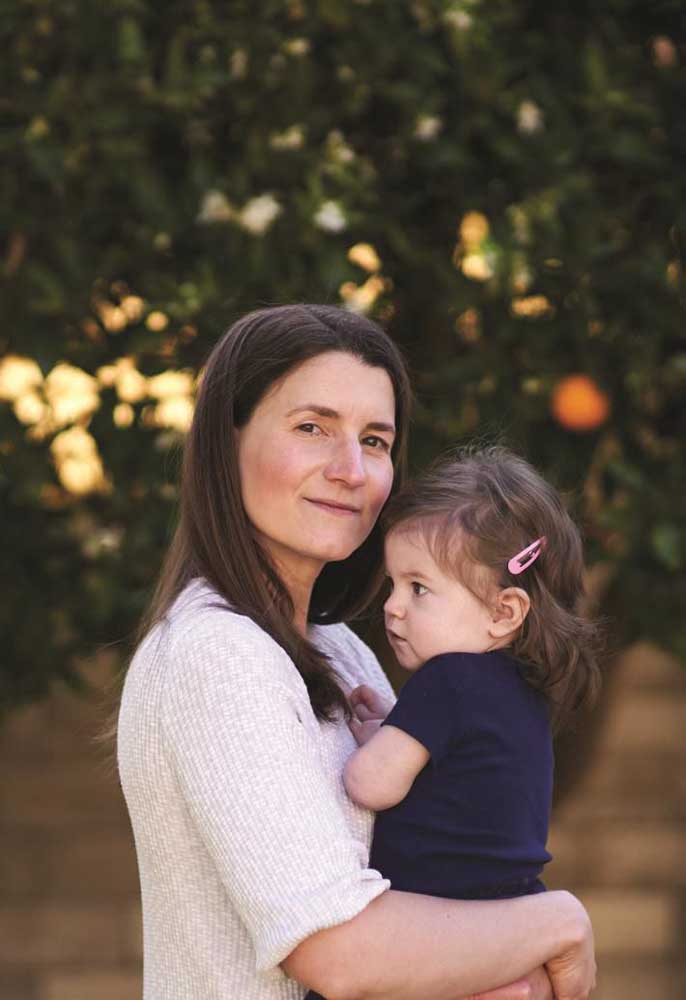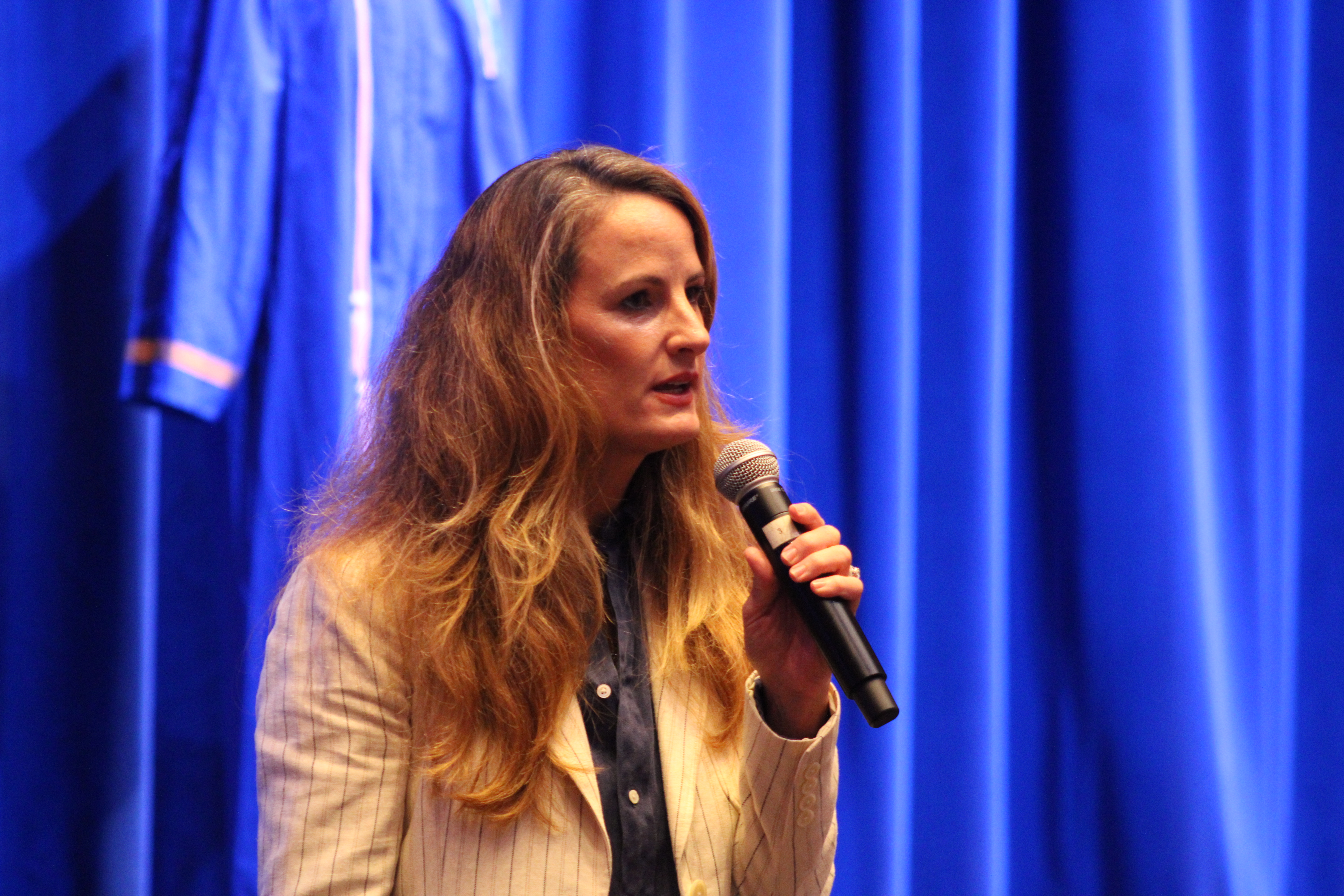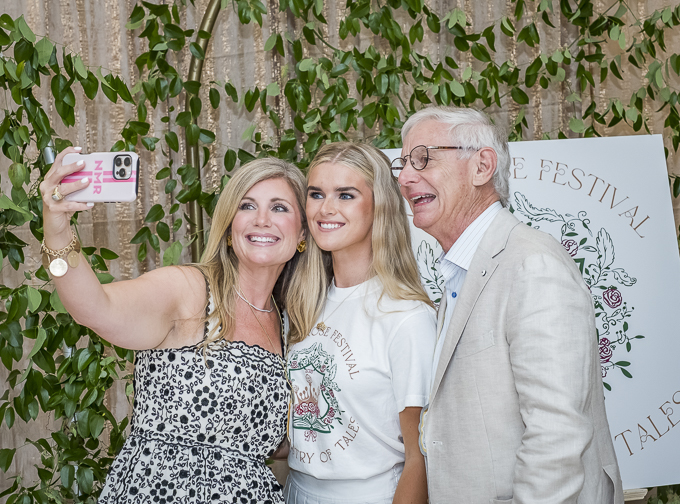Tracking your pregnancy on an app may be more public than you think
Published 1:25 am Thursday, April 11, 2019

- DIANA DILLER stands with her daughter Simone at their home in Los Angeles.
Like millions of women, Diana Diller was a devoted user of the pregnancy-tracking app Ovia, logging in every night to record new details on a screen asking about her bodily functions, sex drive, medications and mood. When she gave birth last spring, she used the app to chart her baby’s first online medical data — including her name, her location and whether there had been any complications — before leaving the hospital’s recovery room.
But someone else was regularly checking in, too: her employer, which paid to gain access to the intimate details of its workers’ personal lives, from their trying-to-conceive months to early motherhood. Diller’s bosses could look up aggregate data on how many workers using Ovia’s fertility, pregnancy and parenting apps had faced high-risk pregnancies or gave birth prematurely; the top medical questions they had researched; and how soon they had returned to work.
Trending
“Maybe I’m naive, but I thought of it as positive reinforcement: They’re trying to help me take care of myself,” said Diller, 39, an event planner in Los Angeles for the video-game company Activision Blizzard. The decision to track her pregnancy had been made easier by the $1 a day in gift cards the company paid her to use the app: That’s “diaper and formula money,” she said.
Period — and pregnancy-tracking apps such as Ovia have climbed in popularity as fun, friendly companions for the daunting uncertainties of childbirth, and many expectant women check in daily to see, for instance, how their unborn baby’s size compares to different fruits or Parisian desserts.
But Ovia also has become a powerful monitoring towol for employers and health insurers, which under the banner of corporate wellness have pushed to gather more data about their workers’ lives than ever.
Employers who pay the apps’ developer, Ovia Health, can offer their workers a special version of the apps that relays their health data — in a “de-identified,” aggregated form — to an internal employer website accessible by human resources personnel. The companies offer it alongside other health benefits and incentivize workers to input as much about their bodies as they can, saying the data can help the companies minimize health-care spending, discover medical problems and better plan for the months ahead.
Emboldened by the popularity of Fitbits and other tracking technologies, Ovia has marketed itself as shepherding one of the oldest milestones in human existence into the digital age. By giving counseling and feedback on mothers’ progress, executives said, Ovia has helped women conceive after months of infertility and even saved the lives of women who wouldn’t otherwise have realized they were at risk.
Experts worry that companies could use the data to bump up the cost or scale back the coverage of health-care benefits, or that women’s intimate information could be exposed in data breaches or security risks. And though the data is made anonymous, experts also fear that the companies could identify women based on the nformation.
Trending
“What could possibly be the most optimistic, best-faith reason for an employer to know how many high-risk pregnancies their employees have? So they can put more brochures in the break room?” asked Karen Levy, a Cornell University assistant professor who has researched family and workplace monitoring.
“The real benefit of self-tracking is always to the company,” Levy said. “People are being asked to do this at a time when they’re incredibly vulnerable and may not have any sense where that data is being passed.”
Ovia chief executive Paris Wallace said the company complies with privacy laws and provides the aggregate data so companies can evaluate how their workforces’ health outcomes have changed over time. The health information is sensitive, he said, but could also play a critical role in boosting women’s wellbeing and companies’ bottom lines.
“We are in a women’s health crisis, and it’s impacting people’s lives and their children’s lives,” he said, pointing to the country’s rising rates of premature births and maternal deaths. “But it’s also impacting the folks who are responsible for these outcomes — both financially and for the health of the members they’re accountable for.”
Companies pay for Ovia’s “family benefits solution” package on a per-employee basis, but Ovia also makes money off targeted inapp advertising, including from sellers of fertility supplements, life insurance, cord-blood banking and cleaning products.
An Ovia spokeswoman said the company does not sell aggregate data for advertising purposes. But women who use Ovia must consent to its 6,000-word “terms of use,” which grant the company a “royalty-free, perpetual, and irrevocable license, throughout the universe” to “utilize and exploit” their de-identified personal information for scientific research and “marketing purposes.” Ovia may also “sell, lease or lend aggregated Personal Information to third parties,” the document adds.
Milt Ezzard, the vice president of global benefits for Activision Blizzard, a video gaming giant that earned $7.5 billion last year with franchises such as “Call of Duty” and “World of Warcraft,” credits acceptance of Ovia there to a changing workplace culture where volunteering sensitive information has become more commonplace.
In 2014, when the company rolled out incentives for workers who tracked their physical activity with a Fitbit, some employees voiced concerns over what they called a privacy-infringing overreach. But as the company offered more health tracking — including for mental health, sleep, diet, autism and cancer care — Ezzard said workers grew more comfortable with the trade-off and enticed by the financial benefits.
“Each time we introduced something, there was a bit of an outcry: ‘You’re prying into our lives,’ ” Ezzard said. “But we slowly increased the sensitivity of stuff, and eventually people understood it’s all voluntary, there’s no gun to your head, and we’re going to reward you if you choose to do it.”
Diller, the Activision Blizzard employee, said she was never troubled by Ovia privacy worries. She loved being able to show her friends what size pastry her unborn daughter was and would log her data every night while lying in bed and ticking through her other health apps, including trackers for food, sleep and “mindfulness.”
When she reported the birth in Ovia, the app triggered a burst of virtual confetti and then directed her to download Ovia’s parenting app, where she could track not just her health data but her newborn daughter’s, too. It was an easy decision. On the app’s home screen, she uploaded the first photo of her newly expanded family.






